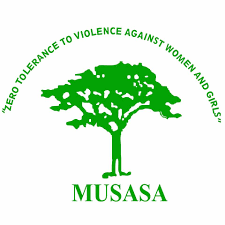
BY Veneranda Langa
CIVIL society group Musasa Project has revealed that its shelter centres had assisted 10 849 gender-based violence (GBV) survivors between April 1 and July 11, 2020, which shows the severity of GBV in Zimbabwe during the COVID-19 lockdown period.
In a joint statement with Oxfam to commemorate Africa Women’s Day, Musasa said mandatory COVID-19 lockdowns had increased cases of violence against women.
The World Health Organisation designated July 31 as Africa Women’s Day to draw attention and focus on addressing maternal and neonatal mortality in Africa.
The African Union (AU) also set July 31 as Pan African Women’s Day to celebrate the foremothers of the AU who fought for the liberation and development of the continent as farmers, entrepreneurs, traders, scientists and leaders in several sectors.
“Violence against women is taking many forms within societies which are physical, sexual, economic and psychological,” Musasa said in a statement.
“One of the negative effects of COVID-19 has seen an upsurge in cases of GBV. Since the onset of the pandemic, all the Musasa shelter centres across the country have noted an upsurge in reported cases of GBV.
“Evidence of this worrying trend is shown in the statistics covering the period between April 1 and July 11, 2020, where Musasa has assisted a total of 10 849 survivors across its various platforms,” they said.
- Chamisa under fire over US$120K donation
- Mavhunga puts DeMbare into Chibuku quarterfinals
- Pension funds bet on Cabora Bassa oilfields
- Councils defy govt fire tender directive
Keep Reading
“The violence against women happens everywhere — at home, at work, in school and university, on the streets, in public transport and communities at large. Therefore, it can happen to any women, affecting her general wellbeing and preventing her from fully participating in society.”
The Musasa statement comes at a time other women organisations such as Women’s Coalition of Zimbabwe and Women in Politics Support Unit have demanded that women should enjoy their rights to water.
This should be through access to clean potable water as stipulated by WHO guidelines, especially during the COVID-19 era.
In a virtual meeting on Thursday, different women activists demanded that women must be included in water policy formulation processes.
The women also want budgets to be sensitive to the gendered water needs of women who bear the brunt of fetching water; as well as need more water due to their biological make-up and reproductive reasons.











